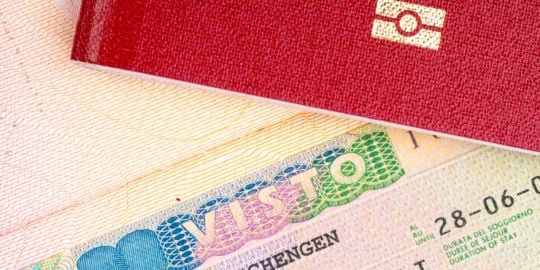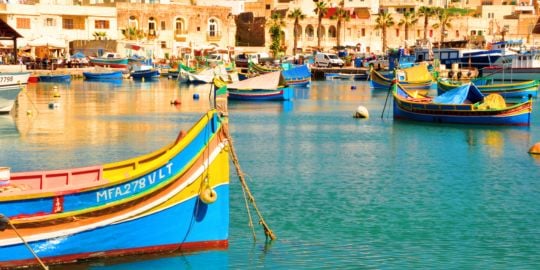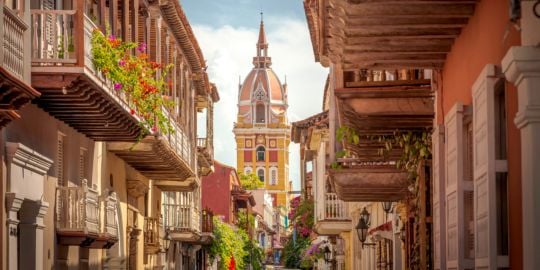Some countries even grant nationality to wealthy expatriates making substantial investments in their territory. While access to traditional visas has been significantly restricted since the beginning of the pandemic, Golden Visas, on the other hand, have been multiplying. What are the benefits and risks of Golden Visas for countries and their economies?
Benefits of golden visa
Turkey, Italy, Greece, Austria, Malta, Bulgaria, Cambodia, Switzerland, Portugal, Monaco, Spain, and Dubai are part of the list of countries offering Golden Visas to wealthy foreigners. The golden visa has a lot of benefits, especially for the administrative part. Golden visa holders can travel hassle-free in several countries. For example, this visa allows its holder to travel across the Schengen area freely. Moreover, golden visa holders do not necessarily have to stay permanently in the visa-granting country. The Portuguese golden visa, for example, requires a minimum stay of one week the first year and two weeks the following two years. Meanwhile, the Greek golden visa does not impose any residence conditions.
The golden visa also facilitates family reunification and citizenship. This is a good option for foreigners seeking dual nationality. Some Golden Visas, such as Turkey's, grant citizenship after two months. It's worth noting that Turkey's golden visa program has gained popularity over the past two years despite the pandemic. Turkish citizenship allows residents to travel visa-free to more than 100 countries. So it's a good option for foreign investors and other professionals.
In November 2020, Dubai expanded its Golden Visas to high talents. Until then, this visa was mainly intended for investors, engineers, athletes, artists, scientists, and outstanding doctors. Since November 2020, therefore, the list of eligible candidates includes computer engineers, biotechnology engineers, holders of doctorates from major universities, etc. Until now, the government has granted a total of 7,000 Golden Visas to foreigners from 103 countries. For Mohammad Al Marri, Director-General of the Dubai General Directorate of Residency and Foreign Affairs (GDRFA), believes that this new residency system is a big boost for the real estate sector. However, beneficiaries are expected to invest at least 5 million Emirati dirhams (approximately 1.2 million euros) in the real estate sector. The Prime Minister made it clear that this is the first batch of visas will be followed by other categories. "We want talented people and great minds to stay in the Emirates and join us in the development and achievement process,” he said.
What are the risks of Golden Visas for countries?
Many European countries have been introducing Golden Visas to attract wealthy foreigners with different levels of investment. Austria, for example, only requires a minimum investment of 40,000 euros but imposes strict conditions to obtain dual nationality. In fact, Austria does not allow dual nationality. Therefore, candidates need to engage in contributing to the country's growth, for example, through mass job creation. Spain and Portugal, for their part, require a minimum investment of 500,000 euros in real estate. Meanwhile, Greece requires half that amount. It also seems that some countries are taking advantage of the Brexit to attract wealthy investors, and this is increasing competition among them.
Does this mean that European Union (EU) countries are putting their nationalities on sale? The year 2019 was marked by controversy regarding the ever-increasing number of EU States issuing the golden visa. However, this is not a new practice, even within the EU. The golden visa concept emerged in the 1980s in the Pacific states and the Caribbean, and principles haven't changed. Many countries in financial turmoil, some of which used to be tax havens, opened their doors to wealthy foreigners in exchange for substantial investments. In 2018, Transparency International and Global Witness published a study on the risks of Golden Visas. One of the main issues raised was the origin of the funds brought to the states. In the web of supply and demand, countries offering the golden visa would therefore give less consideration to the security of funds and transparency. So a massive intake of foreign capital for real estate development programs is likely to be a major risk.
This might be one of the reasons why the United Kingdom put an end to its golden visa scheme in 2018. Corruption, money laundering, tax evasion, fraud, real estate speculation, and organized crime are serious issues that are often neglected by countries offering such schemes.
Experts also point out the hypocrisy of a system that puts profit first. In facts, rarely do States openly communicate about their golden visa policies. Most of them are likely to highlight their measures against illegal immigration. This is a particularly sensitive topic within the EU. On the one hand, poor communities are driven out of territories, and on the other, visas are granted to the rich, although this means a lack of transparency. To date, there is no clear study to determine the impact of wealthy foreigners and golden visa holders on economies.
Still, Golden Visas have resisted controversy and are on the rise. Even countries like the United Arab Emirates have entered the game as some countries are trying all means to attract wealthy foreigners disappointed by Brexit. However, tighter controls have been demanded, particularly within the EU. In July 2021, the Portuguese government decided to reduce the golden visa to contain the real estate bubble. Today, golden visa holders are mostly restricted to Lisbon, Porto, and coastal regions. But the pandemic pushed back the implementation of this measure to the beginning of this year. Although it seems like Golden Visas still have a bright future ahead, it's clear that there will be greater control from now on.
















